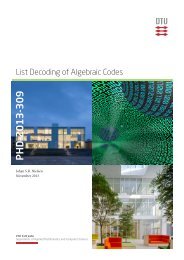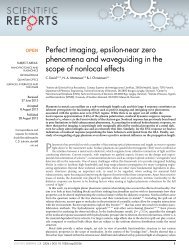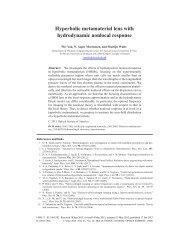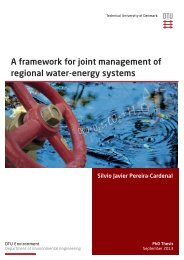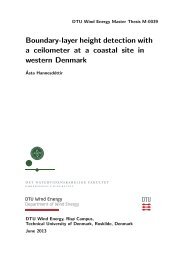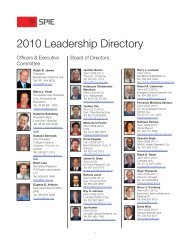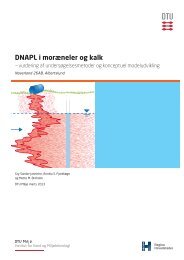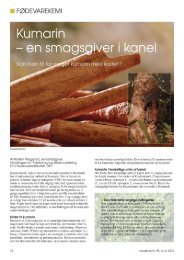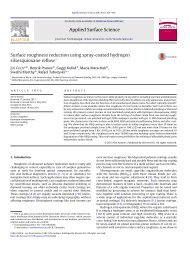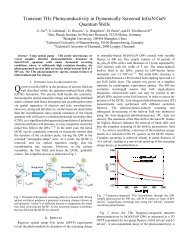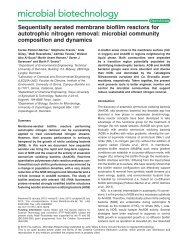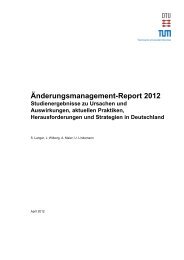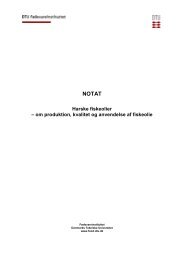PEC12-25 CAPEC-PROCESS Industrial Consortium ... - DTU Orbit
PEC12-25 CAPEC-PROCESS Industrial Consortium ... - DTU Orbit
PEC12-25 CAPEC-PROCESS Industrial Consortium ... - DTU Orbit
Create successful ePaper yourself
Turn your PDF publications into a flip-book with our unique Google optimized e-Paper software.
Associate<br />
Professor Jens<br />
Abildskov (JA)<br />
Associate<br />
Professor Gürkan<br />
Sin (GSI)<br />
Research focuses on development and analysis of correlations and<br />
predictive models for thermodynamic properties of fluids for<br />
chemical process design. Relationships are sought between<br />
molecular structure and thermodynamic properties for simple<br />
descriptions of thermodynamic properties. For densities and<br />
activities of strongly non-ideal fluids this is offered by statistical<br />
mechanical methods based on molecular correlation functions and<br />
their connections to fluctuation properties. Examples of applications<br />
are<br />
• thermodynamic modeling and microscale simulation for<br />
properties relevant to biocatalysis<br />
• mixed solvents (liquids and ionic liquids) with dissolved gases,<br />
enzymes and pharmaceuticals<br />
Exploration is also being made of process energy requirements, to<br />
determine the efficiencies of diabatic distillation processes. Reverse<br />
engineering is employed in a set of contexts.<br />
Collaborations (outside DK) involve researchers in the U.S., the<br />
Netherlands and Germany.<br />
Research Areas (<strong>CAPEC</strong>): A, B, F<br />
The research, in general, focus on development of systematic<br />
methods and tools for understanding, design, operation and control<br />
(bio)chemical processes and aims at providing rationale basis for<br />
better informed decision-making in engineering applications to<br />
achieve energy efficient and sustainable chemical & biochemical<br />
industry. Current research aims at moving the current design<br />
paradigm to predictive and probabilistic-based approaches and<br />
includes:<br />
• Model-based product - process design; model-based technology<br />
evaluation, process synthesis & process retrofitting, risk-based<br />
design ; robust decision making under uncertainty<br />
• Dynamics and process control; Integrated process design and<br />
control; plantwide control; model-based control and operability<br />
analysis<br />
• Process modelling; model identification; model analysis;<br />
numerical methods; systems approach<br />
• Uncertainty analysis; Sensitivity analysis; Monte-Carlo<br />
simulations; Bayesian Inference; Variance decomposition<br />
• Process monitoring, safety and risk assessment<br />
Applications in chemical, biochemical (biotechnology, fermentation<br />
technology, etc), pharmaceutical, food and water industries.<br />
Research areas (<strong>CAPEC</strong>): B, C, D, E<br />
16



